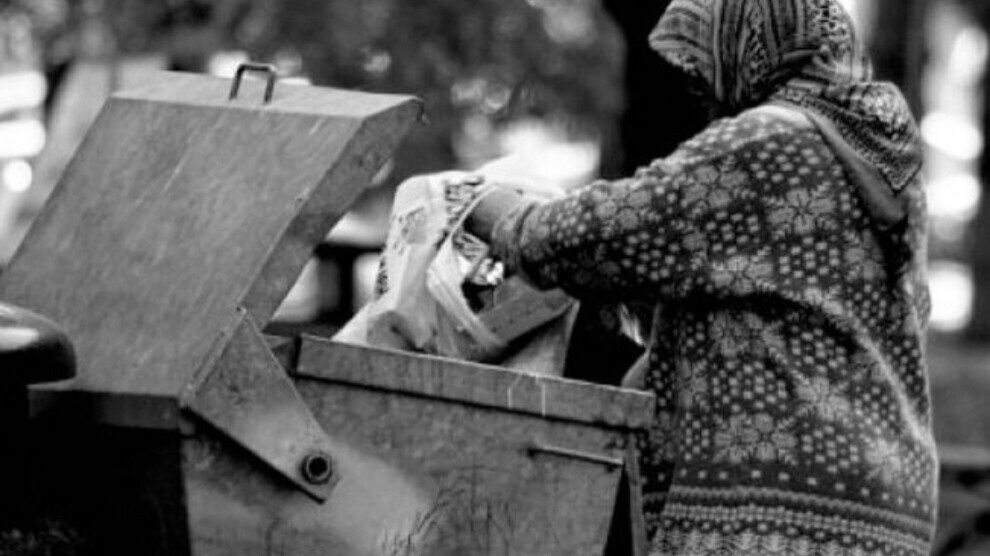HDP report says 20 million people live under poverty line
The HDP Economy Commission's report revealed that 60 percent of the workforce earn the minimum wage or less in Turkey. "At least 20 million people live under the poverty line,"
The HDP Economy Commission's report revealed that 60 percent of the workforce earn the minimum wage or less in Turkey. "At least 20 million people live under the poverty line,"

The Economy Commission of the HDP has presented the "Poverty Report". The report was presented in a press conference at the Parliament, joined by HDP Diyarbakır MP and HDP deputy co-chair responsible for the commission Garo Paylan and HDP MPs Erol Katırcıoğlu, Necdet İpekyüz and Serpil Kemalbay.
The commission's report revealed that 60 percent of the workforce earn the minimum wage or less in Turkey. "At least 20 million people live under the poverty line," the report underlined adding that "if we had to these 20 million the people who have lost their jobs we have a total of 30 million.”
The main findings from the report are as follows:
Regional poverty
Unemployment, the chronic problem of Turkey, has seen a record-high increase, real wages are getting lower and lower. Purchasing power has decreased, even the most basic needs can’t be met.
According to the insured employment statistics in Turkey (August 2020), 8 million 37 thousand people are so poor that they cannot pay their own General Health Insurance premiums. This means that the income of these people is not even one third of the minimum wage and they have no immovable property registered on their names.
Shop owners
After 2015, at least 50,000 shop owners were forced to close down their businesses. According to the statistics of the Turkish Tradesmen and Artisans Confederation (TESK) for November 2020, there are 1 million 984 thousand 257 shop owners in Turkey. There are 303 thousand 628 shop owners in 23 provinces in the Kurdish region and this figure accounts for only 15.3 percent of the total number.
The lowest ratio of shop owners according to population is in Şırnak with 1.01 percent. Only these figures show the problems of the economic activity in the region where the production infrastructure is insufficient. The cities in the region usually rank last in the provincial life indexes. There is no Kurdish-majority city in the list of the most developed 30 cities of the country.
Women's poverty
Poverty and precariousness are imposed on women. Domestic work, invisible and/or unpaid, paves the way for women's economic and social dependence, forced social insurance through their husbands or fathers thus making women dependent on family and on men through family.
The rates of retirement can also be read as an indication which proves this: While only 17 percent of women retire, this rate is 81 percent among men. The gap between these rates proves that women are subjected to an established policy of 'social precariousness'.
Pensioners
Pensioners are having difficulties in making ends meet. While 37 percent of retired people were working or looking for work in 2002, this rate has increased to 47 percent in 2020. As for the income injustice among pensioners, it is higher in Turkey than all EU countries.
The wages of 60 percent of pensioners and rights holders are below the minimum wage. Giving pensioners 1,500 Turkish Lira (around 200 USD) a month is not something to be proud of by any government; on the contrary, it is a great source of shame in an environment where the inflation rate is in double digits and the inflation rate of food products is over 20 percent.
Reccomendations
HDP listed its recommendations to address poverty in Turkey:
A universal basic income must be provided;
the net minimum wage must be 4,000 TRY and exempt from taxes;
electricity, water and natural gas must be free based on needs;
arrangements must be made to increase youth and women's employment.